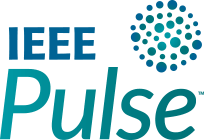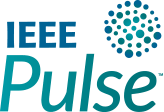In my worst moments, when I was feeling like I had made no progress in my thesis work and that my advisor had lost all faith in me, I would read self-help articles. It felt a little pathetic, but at the same time, they gave me a reason to hold on. “Learn to accept failure,” the gurus-turned-authors would tell me. I could take control and use my feelings of defeat and frustration to work harder, dream bigger, and thrive off of other peoples’ judgment. “Everyone fails,” they insisted, before throwing out numbered lists of the top U.S. innovators in science and technology, who had, at one point or another, appeared aimless and without merit, and whose risky choices had been mocked by their peers. The authors of those articles promised me that I would be pictured on that numbered list one day, smiling confidently and smugly in my success. Having weathered my fair share of storms throughout my Ph.D. program thus far, I believed I had mastered the ability to accept failure, to have humility, and to persevere in the face of hopelessness. Then, I truly began to fail.
Over the past few years, I have felt my resolve slowly draining and my confidence seeping away. I have doubted my decision to apply to graduate school, to choose a career in science, and to fight my way into a lab with an all-star advisor and competitive students. Past research experiences had taught me that I am most successful when guided by a present and attentive mentor, and that I am capable of producing an impressive amount of work when properly motivated. But then, I stepped foot on Columbia’s campus and experienced New York City for the first time. I was so enthralled by the glamour of Manhattan and the beautiful lab space I saw on the tours that I forgot to put my educational needs before the school’s Ivy League reputation, my potential advisor’s status within the scientific community, and my pride. This will be my challenge to overcome, and I will as I always have, I thought, ignoring all of the advice I had gotten that year. When I look back on my decision now, I realize I set myself up to fail.
For four years, I have struggled, worn myself out to the point of exhaustion, and destroyed my mental health. I knew something was wrong for a long time, but I didn’t know how to communicate my feelings to those around me. I didn’t know how to express what I needed and wanted from my advisor, from my labmates, or from my friends. I internalized all of the frustration and shame, blaming myself, believing that it was my responsibility to make it on my own. I felt like I had something to prove, even though all I had ever wanted was to learn. Bouncing from project to project, absorbing the disdain and contempt of those around me with each disappointing and increasingly apathetic performance, I finally isolated myself completely and detached from the lab. I gave up.
I see now that I failed on two fronts. First, I had been aware for years that I struggle with anxiety and depression. It’s no surprise that these issues intensified as my situation in the lab deteriorated, but still, I was too proud, or perhaps embarrassed, to get help. I wanted to see myself as emotionally resilient, and this was simply how my strength of character would be tested. I didn’t want to feel pitied, and so I doomed myself to years of compounded suffering. (I could write another whole column about the ridiculous stigma placed on mental health issues in this country, but I won’t now.) Second, I never told anyone at work that I was drowning. Whatever my feelings about the lab and the style of mentorship, I believe that if I had talked to my advisor, to my lab colleagues, to my friends, and to administrators about how I was struggling, someone would have stepped in years ago. It might not have been enough for me to realize my full potential there, and I may still have ended up in the same place, but it would have been something. A whole new support structure could have been revealed. I probably wouldn’t have spiraled so far down and flamed out so spectacularly. I knowingly chose a lab that could never be a great fit for me, and then instead of figuring out how to make it work, I slowly erased myself from it, piece by piece, because I couldn’t face my own mistakes.
My dad always used to say to me, “Be brave.” As a child, I was so timid and shy, he was forever afraid that I would be taken advantage of at every turn and beaten down by life. When he would repeat these words to me as I struggled over the last four years, I thought being brave meant that I should continue to put my head down and ride my misery out to the end. I thought being brave meant being independent and strong and persevering until I magically succeeded against all odds. Now, I think being brave means something else. Or at least it will have to, for me. Being brave will mean accepting my failure and moving on from it. Being brave will mean owning all of my flaws and missteps without punishing myself for them, every minute of every day. Being brave will mean letting go of the past, and allowing myself to believe that maybe this last project really will be the one that pans out. Being brave will mean knowing that I don’t need to walk the linear path to achieve something meaningful, if it doesn’t.
Over the last few weeks, I have done things I never thought possible—I pushed down all of my fear, shame, and every instinct I have to pretend everything is okay, and I confessed to everyone that I am lost. I sobbed over the phone to my best friend, who promptly put on the brave face I couldn’t even begin to muster, and promised me a place on her couch and a job in Chicago if everything fell apart. I e-mailed my research advisor from college, who had inspired me to get a Ph.D. degree and become a professor in the first place, to tell him I felt like giving up. I confided in trusted friends in my program and sought sage advice from those with whom I should have been keeping pace. Then, I admitted the truth to my parents and sister, and we shouldered the burden of my failure together. Through my bitterness and tears, I watched as the most amazing thing happened at the end of each conversation: each person accepted me as I was, exposed and vulnerable, and offered up their support. Finally, I revealed it all to my advisor—my doubts, my inadequacies, my sickness—and she told me she still believed in me.
I have no idea what happens next, but the knot in my stomach is gradually loosening, and I’m beginning to feel the first glimmers of relief. I have come across many who were eager to challenge me and my work ethic, remarking that no one would do my work for me or give me all the answers, as if the only reason a student might be struggling in graduate school would be because they couldn’t bring themselves to put in the effort. At this point, I can’t say anything for sure, and I am beginning to question what it is I want out of my career, out of my life, and whether I really need a Ph.D. degree to accomplish any of those things. I can’t identify one thing that lights a fire in my belly and gets me going in the morning, but I’m prepared to accept that it may never be my research. I have no answers, and so I am leaving every option on the table, including the option of walking away.
Login to IEEE Pulse
Reset Password
Enter the username or e-mail you used in your profile. A password reset link will be sent to you by email.


